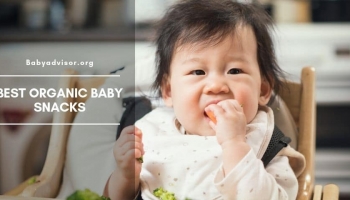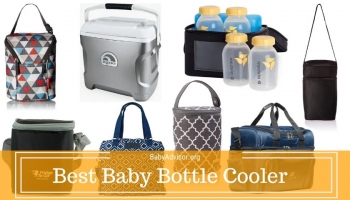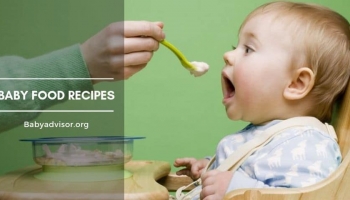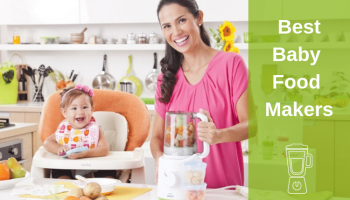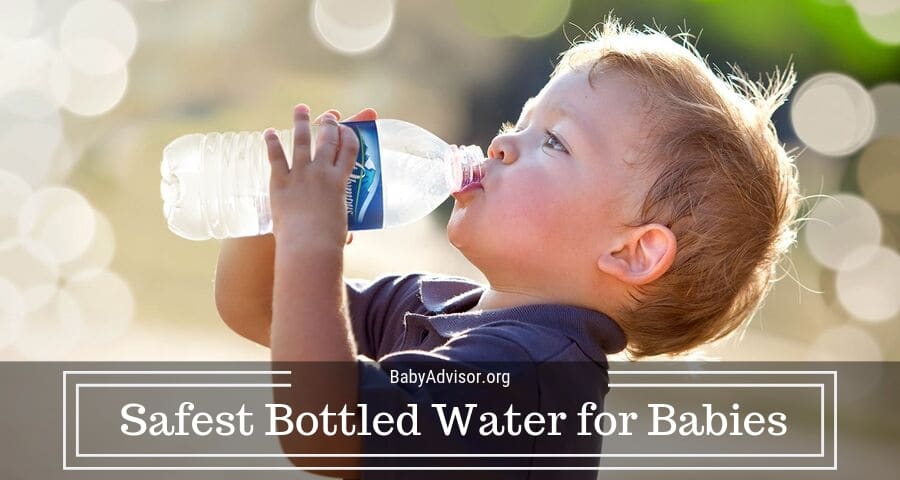
On a hot day, you might wonder if you can give your baby water. If so, what is the safest bottled water for babies? Or, perhaps you’ve already offered your baby water, but you forgot his water at home. So, you have to give bottled water from the store.
That leads you to the question of whether or not babies can drink bottled water. Is bottled water as safe as boiled drinking water at home?
It may seem like a silly question, but we do have to make sure whatever we give our babies is safe for them. Let’s take a look at what parents need to know.
When Can Babies Drink Water?
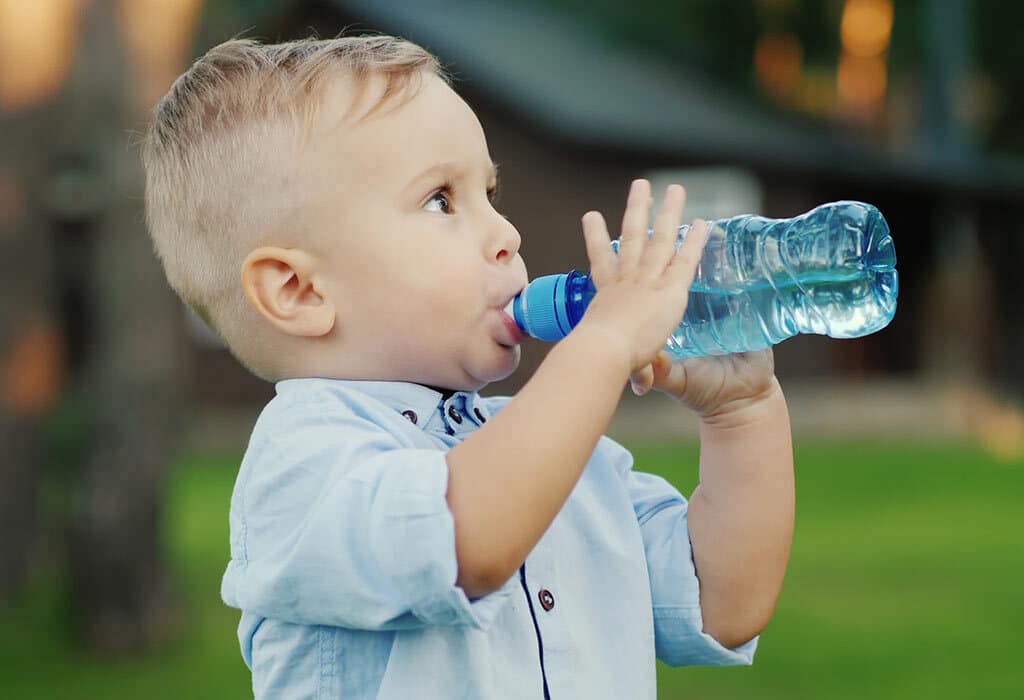
A well-meaning family friend might tell you that it’s a good idea to give your new baby a drink of water.
“‘Oh, he has to be thirsty!”
It makes sense at first; you get thirsty all of the time. However, we know that giving babies water isn’t a good idea. Breast milk or formula is enough for young babies. Until your baby starts to eat solid foods, around six months old, infants get all of the water they need from formula or breast milk. They stay plenty hydrated.
Now, you might want to give your baby a sip of water on a hot day or when your baby is sick and losing fluids due to diarrhea. Be sure to speak to your pediatrician before so to ensure it’s safe for your child.
Most doctors recommend that you wait until four to six months old to introduce water. At this point, how much water to serve your child is up to your baby.
Offer your child an ounce or two of water at a time; new water drinkers might only drink one ounce during the entire day. Remember, she’s plenty hydrated from formula or breast milk!
Can Babies Drink Bottled Water?
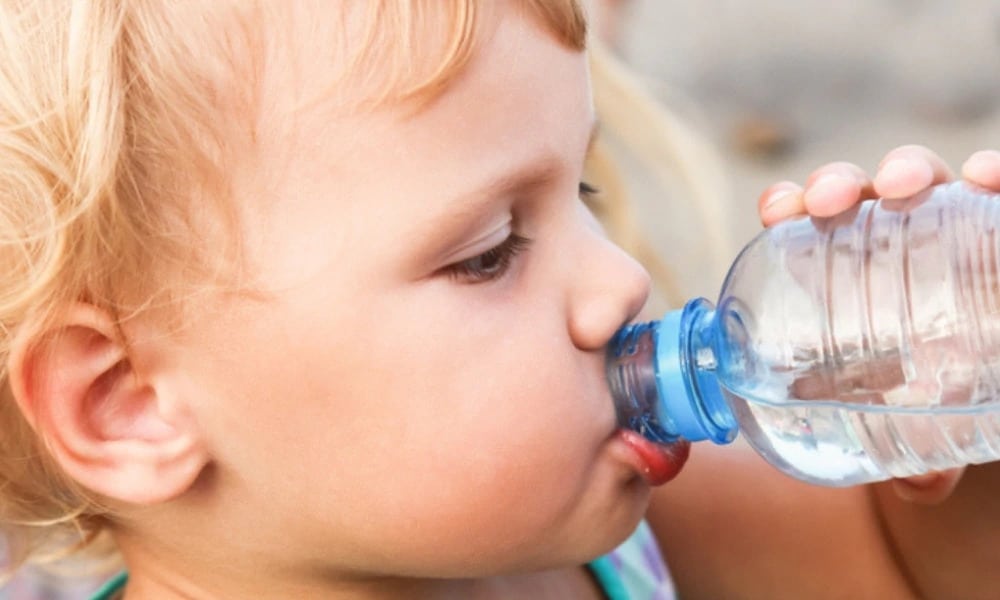
Yes! You can give bottled water to babies if they are older than six months old. The US Food and Drug Administration advises that parents can provide low-fluoride bottled water to your baby when it’s necessary.
However, the UK National Health Service tells parents that you need to boil the bottled water before using it to make infant formula for your baby. That’s because bottled water might not be sterile, or it could contain too much sulfate or sodium.
The Three Types of Bottled Water
There are three different types of bottled water that you can purchase for your baby.
Mineral Water
This type of bottled water contains high quantities of dissolved minerals. These minerals are naturally present in the water extracted from the ground or taken from a natural underground spring. Some manufacturers add minerals that make the water taste better and increases the nutritional benefits.
Packaged Drinking Water
This type of water goes by other names such as packaged water, purified water, or packaged purified water. Companies source this water from lakes, rivers, or even public taps, and it goes through UV treatment and uses reverse osmosis for improved taste.
Distilled Water
Here is the next bottled water source, and it’s water in its purest form. It doesn’t have the presence of any dissolved gases or minerals, and it’s not typically used for dietary consumption. It tastes bland.
What Are The Requirements for Bottled Water for Babies?
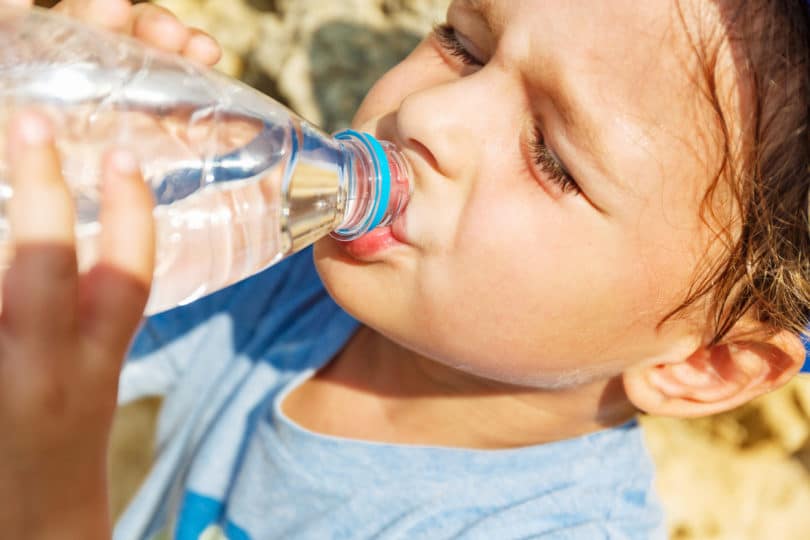
The FDA and the NHS set different requirements for bottled water if you want to give it to your babies. Here is what you need to look for in your water.
1Less Sodium
Less Sodium
You want to make sure the sodium (Na) content in the water you give your baby is less than 250mg per liter of water.
2Low Sulfate
Low Sulfate
Each water that you select needs to have less than 250mg of sulfate (SO4) in a liter of water.
3Select “Low-Fluoride” Versions
Select “Low-Fluoride” Versions
Some packaged drinking water has an average of 0.11mg of fluoride per liter or ppm (parts per million). That’s considered safe for babies. If you can find a version with a lower level of fluoride, then you can pick that choice.
The best kind of water for your baby contains no fluoride. Fluoride is found in 70% of city water and some bottled water. Excess amounts of fluoride put your baby at risk for enamel fluorosis, which is a condition that develops when the teeth are forming in the gums.
Enamel fluorosis isn’t a disease, but it results in faint white lines o white spots on the permanent teeth. Fluoride is found naturally in both formula and breastmilk, so there is no need to add more.
22 Choices for the Safest Bottled Water for Babies
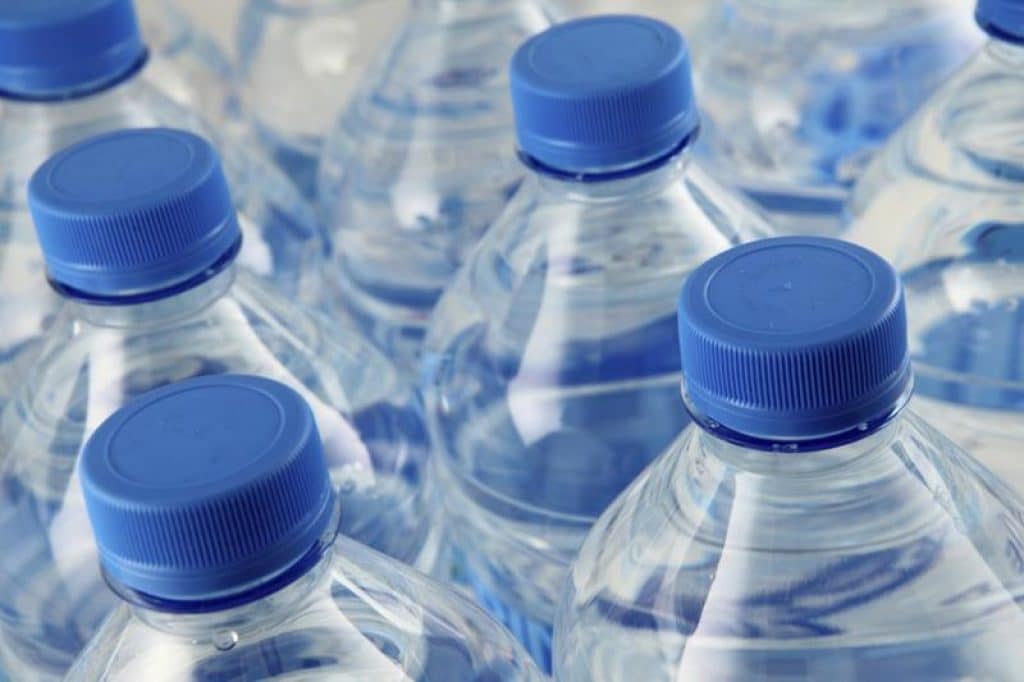
These common brands of water that contain little to no fluoride include:
- Arbor Springs
- Aquafine Water
- Aqua-Pure
- BlackBerry Farms
- Blue Ice Natural Mineral Water
- Cascade
- Century Springs
- Clear Mountain Spring Water
- Crystal Spring Natural Spring Water
- Dannon
- Deja Blue
- Eureka
- Evian
- Flowing Springs
- Fresh Market
- Glacier Bay
- Hidden Valley Natural Mineral Water
- Mountain Valley Spring Water
- Oasis Pure Drinking Water
- Polaris Water
- Smart Water
- Whole Foods 365
Should You Boil Bottled Water?
Parents are told to boil the water that they use for formula, but should you boil bottled water? Yes, you can boil the water, but it’s not necessarily needed to do. If you use manufactured water from a reliable brand, boiling is just an extra step.
Boiling is a good choice if you aren’t sure about the quality of the water. Bring the water to a rolling boil, and then you need to keep boiling the water for a minute to be sure that the germs are killed and gone. However, boiling water when traveling with your baby is difficult, so buy bottled water from a trusted brand.
Is There a Difference Between Baby Water and Bottled Water?
Baby water is sometimes called nursery water, and it’s bottled water manufactured explicitly for babies. Baby water is very similar to regular bottled water, and there aren’t many differences between the two types of water.
You may also interested: Best Baby Bottle Warmer for babies.
Can You Use Bottled Water for Baby Formula?
Many parents want to use bottled water for baby formula because it’s easy to carry bottles of water with you when you’re on the go.
Doctors say that it’s safe to use bottled water for preparation of infant formula, as long as it’s sterile or boiled for at least a minute. If the bottled water is labeled pure and meets the FDA standards for bottled water for babies, you can use it to prepare infant formula.
Read more useful things about Anti-colic bottles: Use these best Anti-colic bottles to beat colic.
Conclusion
Water is a vital source of fluids for your baby. Once your baby is six months and older, you can give water with meals or snacks. Before that age, you need to use the right water to make formula bottles for your baby.
To find the safest bottled water for babies, be sure that you check the label for the level of various mineral salts before giving it to your baby. You also want to make sure you pick the water with the lowest amount of fluoride in it for ultimate safety.



